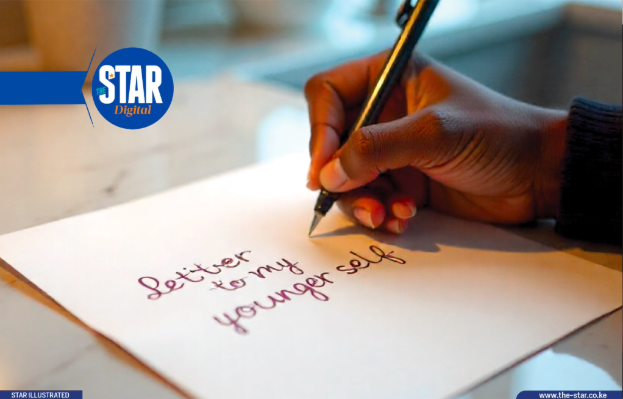

Every scar has a story. “Letter to My Younger Self” invites you into the reflective hearts of people who've walked winding roads—offering gentle truths, bold lessons, and encouragement for anyone still figuring it out. These weekly letters are full of grace and grit, showing how setbacks shape wisdom and how the past still holds power to teach. From nurturing curiosity to embracing mentorship, each piece is a tribute to growth through lived experience.
George Sawe* not his real name pens this week’s heartfelt Letter to My Younger Self.
Dear Younger Self,
From a young age, I was always curious about how things were made, how they worked, and what systems existed behind the scenes to keep the modern world running.
Whether it was a towering bridge, a complex machine, or even the simplest household gadget, I constantly found myself asking: Why does it work like that? Could it be done better?
This ongoing curiosity slowly developed into a deep admiration for engineering. I became fascinated by how it combines logic, creativity, and real-world problem-solving to make a meaningful impact on people's lives.
It's a discipline that doesn't just deal with machines or infrastructure-it's about crafting solutions that make daily life easier, more efficient, or more connected.
What drew me most to engineering was its power to create tangible change. Engineers, in my view, are the quiet force behind progress. They rarely take the spotlight, yet their work shapes almost every aspect of modern society. That idea has inspired me for as long as I can remember.
As I grew older, my admiration turned into aspiration. I no longer wanted to just observe and appreciate; I wanted to contribute, to create, and to innovate. I imagined myself as part of that world-using knowledge and imagination to design better systems and solve real problems.
What fascinates me most about engineering is its perfect blend of critical thinking, innovation, and real-world application. It felt like the natural path for me. But then I hit a roadblock-one that still makes me pause and reflect.
Why didn't I take physics in school.
Despite knowing where my passion lay, why did I somehow find myself on a different academic path? And to this day, I still ask myself: How did that happen?
Like many students in Kenya's secondary schools, I faced the challenge of choosing science subjects in Form Three. At the time, students were required to take two sciences from the cluster of Physics, Chemistry, and Biology. However, most schools automatically treated Chemistry and Biology as mandatory, leaving little room for personal interest or flexibility.
Why did I miss out on physics-a subject that forms the foundation of most traditional engineering fields?
Engineering relies heavily on the principles of physics to design and build everything from bridges to software systems. Without that foundation, the door to engineering, at least in a formal sense, seemed to close quietly behind me.
Now, years later, I still find myself passionate about engineering. I still admire its power to solve problems, to innovate, and to shape the future. And I still wonder what path I might have taken if I had pursued physics back then.
But here's what I've come to realise: the decisions we make especially at a young age are often made without fully understanding their long-term implications. We choose based on what we know at the time, which is often limited.
Still, this experience has taught me something valuable: it's never too late to learn, to explore, or to reconnect with what you're passionate about.
Everyone has a story worth sharing. If you’ve ever wished you could talk to your younger self—with wisdom, forgiveness, or clarity—we invite you to write to us. Your real, heartfelt letter might just be the encouragement someone else needs today. You may remain anonymous if preferred, but your truth matters. We don’t pay contributors, but we believe in the power of shared experience. Join us in building a collection of life’s hard-earned lessons and gentle reminders.
Be part of this movement. Send your Letter to My Younger Self to: [email protected]

















